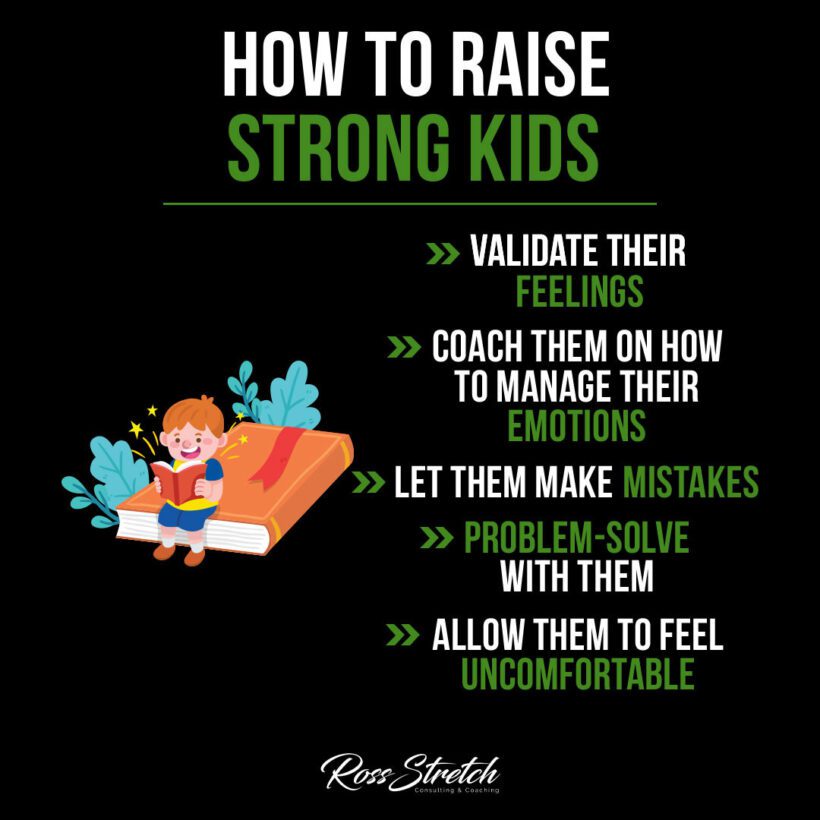Raising children to be strong, emotionally intelligent, and resilient is one of the most important tasks a parent can undertake. It involves more than just providing for their physical needs; it’s about nurturing their emotional growth and helping them develop the skills they need to navigate the complexities of life.
Validating Their Feelings
Validating a child’s feelings is the cornerstone of emotional intelligence. It teaches them that their emotions are important and that it’s okay to express them. This validation is a powerful form of emotional support that encourages children to understand and accept their feelings.
The Impact of Emotional Validation
When children feel heard and understood, they develop a sense of security and self-worth. This foundation allows them to approach life with confidence and resilience. Parents can practice this by actively listening to their children and acknowledging their emotions without judgment.
Emotional Coaching for Kids
Coaching children on how to manage their emotions is a crucial aspect of raising strong kids. Emotional regulation is not innate—it’s learned. Parents play a pivotal role in teaching their children how to identify, process, and respond to their emotions effectively.
Techniques for Managing Emotions
Teaching children simple techniques such as deep breathing, identifying emotions through language, and finding healthy outlets for their feelings are practical steps towards emotional mastery. Resources like the Collaborative for Academic, Social, and Emotional Learning (CASEL) provide guidelines and tools for emotional coaching.
The Value of Mistakes
Letting children make mistakes is vital for their development. Mistakes are opportunities for learning and growth. They teach resilience, problem-solving, and the reality that not every effort will result in success—and that’s perfectly fine.
Learning from Failures
Encourage children to see failures as stepping stones rather than roadblocks. Discuss what they can learn from each mistake and how they can apply that knowledge in the future. Books like “Mindset” by Carol S. Dweck can offer insights into cultivating a growth mindset in children.
Problem-Solving Together
Problem-solving is a skill that children will use throughout their lives. By solving problems together, parents can guide their children through the process of identifying the problem, brainstorming solutions, and testing out their ideas.
Developing Critical Thinking Skills
Engage children in discussions that challenge them to think critically and come up with creative solutions. This not only strengthens their cognitive abilities but also empowers them to become independent thinkers.
Embracing Discomfort
Allowing children to feel uncomfortable is not about neglect; it’s about teaching them that discomfort is a part of life. Learning to cope with and overcome uncomfortable situations builds resilience and prepares children for the challenges of adulthood.
Growth Beyond the Comfort Zone
Encourage children to step outside their comfort zones, whether it’s trying a new activity or making a new friend. Support them through the discomfort and help them reflect on the growth that comes from these experiences.


